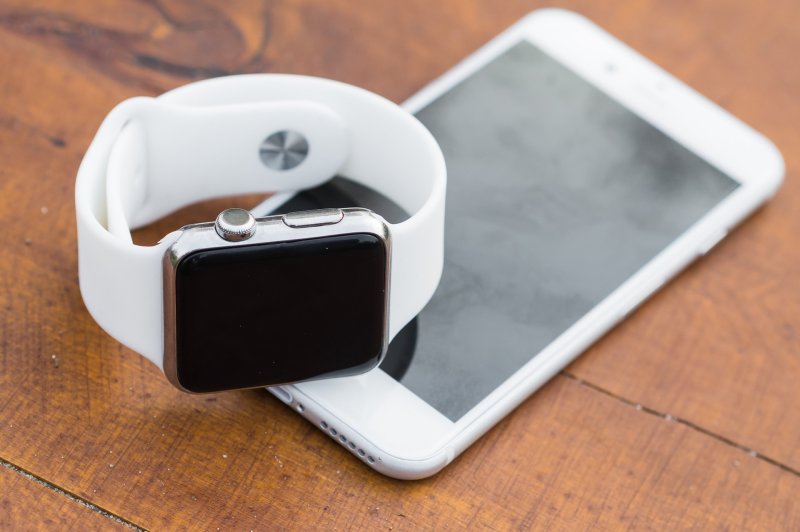Researchers say smartwatch technology can be used to track disease progression in COVID-19. Photo by Dariusz Sankowski/
Pixabay
April 19 (UPI) -- A smartwatch that can track heart rate can be used to monitor disease progression in people with COVID-19 and may predict how sick they will become, a study published Tuesday found.
Heart rate per step tracked with a smartwatch, a measure of heart and lung function, increased after COVID-19 symptom onset and was higher in study participants who reported a cough, data published Tuesday by Cell Reports Medicine showed.
In addition, circadian phase uncertainty, or the body's inability to time daily events, rose around the time of COVID-19 symptom onset in study participants, the researchers said.
Because circadian phase uncertainty relates to the strength and consistency of the circadian component of the heart rate rhythm, it may correspond to early signs of infection, they said.
Similarly, daily basal heart rate, or a person's heart rate when at rest, tended to increase on or before virus symptom onset. This may be due to fever or heightened anxiety, the researchers said.
All of these could be used to spot new infections and identify cases of severe illness caused by the virus, they said.
These measures were significantly altered during COVID-19 and could show symptomatic versus healthy periods in smartwatch wearers' lives, according to the researchers.
"Identifying the varying patterns of different heart rate parameters derived from wearables across the course of COVID-19 infection is a substantial advance for the field," study co-author Dr. Srijan Sen said in a press release.
"This work can help us more meaningfully follow populations in future COVID-19 waves," said Sen, a professor of psychiatry and director of the Eisenberg Family Depression Center at the University of Michigan in Ann Arbor.
Previous studies have shown that COVID-19 has long-term effects on the heart rate of those infected.
Researchers at Johns Hopkins University and Duke University, among others, have been working with wearable devices that help detect the presence of disease based on changes in heart rate, body temperature, sweat and other parameters.
For this study, Sen and his colleagues followed 43 medical interns and 72 students from the University of Michigan who reported a positive COVID-19 test, experienced symptoms of the disease and had smartwatch-measured heart rate data from 50 days before symptom onset to 14 days after.
Using the heart rate data, the researchers were able to estimate when participants were infected with the virus that causes COVID-19 and gauge how sick they became, they said.
Participants with the disease saw an increase in heart rate per step after symptom onset, and those with a cough had a much higher heart rate per step than those without a cough, the data showed.
That heart rate increases tended to occur around symptom onset could be an indication of the effects of the stress-related hormone adenosine on people with the virus, the researchers said.
The same approach could be used to detect other diseases such as the flu and to track disease at home or when medical resources are scarce, such as during a pandemic or in developing countries, they said.
"We found that COVID dampened biological timekeeping signals, changed how your heart rate responds to activity, altered basal heart rate and caused stress signals," study co-author Daniel Forger said in a press release.
"What we realized was knowledge of physiology, how the body works and mathematics can help us get more information from these wearables," said Forger, a professor of mathematics and research professor of computational medicine and bioinformatics at the University of Michigan.















